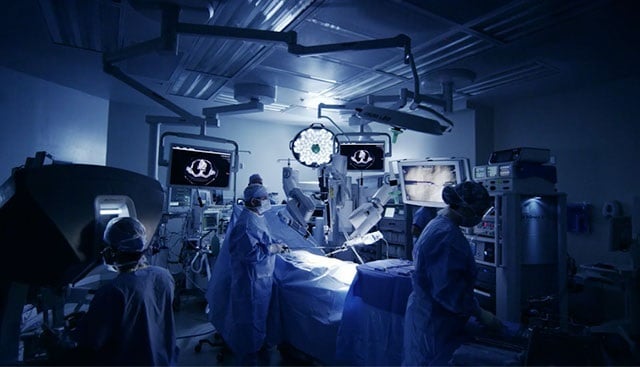Kidney Cancer

Kidney cancer develops when healthy cells mutate and begin to grow and divide very rapidly. The abnormal cells then build up, bind together and form tumors in the kidneys. In most cases, the cancer forms in the lining of the renal tubules, which are tiny tubes that filter waste products from the blood and produce urine. This specific type of kidney cancer is known as renal cell carcinoma.
What are the other types of kidney cancer?
As was noted above, renal cell carcinoma develops in the lining of the renal tubules within the kidney. This is by far the most common type of kidney cancer, accounting for approximately 90% of all kidney cancer diagnoses. Renal cell carcinoma can be classified into numerous subtypes based on how the cancer cells appear when viewed under a microscope. These subtypes include:
- Chromophobe renal cell carcinoma
- Clear cell renal cell carcinoma
- Collecting duct carcinoma
- Hereditary cancer syndromes
- Medullary carcinoma
- Mucinous tubular and spindle cell carcinoma
- Multilocular cystic renal cell carcinoma
- Neuroblastoma-associated RCC
- Papillary renal cell carcinoma
- 2 translocation–TFE3 carcinoma
- Unclassified lesions
Apart from renal cell carcinoma, other types of kidney cancer include:
- Renal sarcoma – When compared to the other types of kidney cancer, renal sarcoma is quite rare. It develops in the blood vessels or connective tissue within a kidney.
- Transitional cell carcinoma – This form of kidney cancer originates in the lining of the renal pelvis, which is where urine collects before being sent to the bladder. Studies have uncovered a link between using tobacco (or otherwise being exposed to carcinogens) and developing transitional cell carcinoma.
- Wilms tumor (nephroblastoma) – These tumors are often able to grow to a remarkably large size before being detected. In fact, in some instances, they even outgrow the size of the kidney itself. Notably, this type of kidney cancer most commonly affects children.
What causes kidney cancer?
Scientists within the general medical community are working hard to gain a better understanding of the cellular DNA changes that lead to the development of renal cell carcinoma. While the precise causes are still unknown, several risk factors have been identified, including smoking and obesity. Certain inherited genetic syndromes have also been linked to an elevated risk of kidney cancer, including von Hippel-Lindau disease, hereditary papillary renal cell carcinoma, Birt-Hogg-Dubé syndrome, hereditary renal oncocytoma and hereditary leiomyoma renal cell carcinoma. Screening options are available for high-risk patients.
What are the symptoms of kidney cancer?

Early-stage kidney cancer is often asymptomatic. As a tumor grows, it may begin to produce symptoms such as:
- Bloody urine
- Pain and tenderness between the ribs and hips
- Low back pain
- Loss of appetite
- Unintended weight loss
- Fever
- Anemia
What is metastatic renal cell carcinoma?
Like other types of cancer, kidney cancer can spread (metastasize) throughout the body as it progresses. As a kidney tumor grows, it may spread into nearby fat or blood vessels, or even into the adrenal gland. Once kidney cancer has reached those areas, it can begin spreading farther via the bloodstream or lymph system.
After renal cell carcinoma spreads to a distant area of the body, it becomes known as metastatic renal cell carcinoma or stage 4 kidney cancer. The most common areas of metastasis for kidney cancer are the lungs and the bones, but the malignancy may also spread to the brain, liver and ovaries/testicles. Although some cases of metastatic renal cell carcinoma can be cured, treatment typically focuses on slowing the progression of the malignancy and managing any resulting symptoms.
What are the stages of kidney cancer?
Physicians typically use a numbered staging system to describe how far kidney cancer has progressed. To make this determination, a practitioner will consider the size of a patient’s tumor and how far the malignancy has already spread throughout the patient’s body. The stages of kidney cancer are as follows:
- Stage 1 – The tumor is less than 7 centimeters wide (approximately the size of a tennis ball). At this stage, the cancerous cells have not yet spread beyond the kidney.
- Stage 2 – At this stage, the kidney cancer remains confined to the kidney, but the tumor has grown larger than 7 centimeters.
- Stage 3 – Kidney cancer will be classified as stage 3 if the malignant cells have spread to nearby blood vessels or lymph nodes, regardless of the size of the tumor.
- Stage 4 – As was noted above, once kidney cancer has reached stage 4, it has metastasized to a distant area of the body.
What is the kidney cancer survival rate?
According to the American Cancer Society, the 5-year relative survival rates for kidney cancer are as follows:
- Localized (kidney cancer that hasn’t spread outside the kidney) – 93%
- Regional (kidney cancer that’s spread to nearby structures or lymph nodes) – 71%
- Distant (kidney cancer that’s spread to distant parts of the body) – 14%
- Combined – 76%
To provide more context as to what these numbers mean, the percentages indicate how kidney cancer patients compare to members of the general population. For example, the 93% rate means that individuals with localized kidney cancer are 93% as likely to live for at least five years after being diagnosed as people without that type of cancer.
It’s important to remember that kidney cancer survival rates simply represent statistical averages and have no bearing on the outcome of individual cases, nor on patients’ quality of life. When someone is diagnosed with kidney cancer, their treatment team will be able to make predictions that are more tailored to that individual’s specific circumstances.
Notably, these statistics don’t consider the cause of death, meaning that some of the individuals who didn’t reach the 5-year mark may have died from other causes. The numbers also don’t mean that kidney cancer patients will live for only five years—indeed, many individuals with this malignancy survive for much longer than that. Plus, because many new advancements in kidney cancer treatment have been made since these studies were performed, the survival rates may have already improved.
How is kidney cancer treated?
Renal cell carcinoma treatment can vary based on several factors, including the stage of the cancer and the patient’s overall health. Some options include:
Surgery
 In most cases, surgery is the first-line treatment for renal cell carcinoma. To address a relatively small tumor that is confined to a kidney, a surgeon may perform a partial nephrectomy to remove the cancerous portion of the kidney along with a margin of surrounding healthy tissue. To address a more advanced tumor, a surgeon may perform a radical nephrectomy to remove the entire cancerous kidney, a margin of surrounding fatty tissue and possibly the adrenal gland and some nearby lymph nodes. For some patients, robotic surgery performed with the assistance of the da Vinci® Surgical System may be a minimally invasive alternative to a partial or radical nephrectomy.
In most cases, surgery is the first-line treatment for renal cell carcinoma. To address a relatively small tumor that is confined to a kidney, a surgeon may perform a partial nephrectomy to remove the cancerous portion of the kidney along with a margin of surrounding healthy tissue. To address a more advanced tumor, a surgeon may perform a radical nephrectomy to remove the entire cancerous kidney, a margin of surrounding fatty tissue and possibly the adrenal gland and some nearby lymph nodes. For some patients, robotic surgery performed with the assistance of the da Vinci® Surgical System may be a minimally invasive alternative to a partial or radical nephrectomy.
Energy ablation
In some cases, hot or cold therapy may be used to treat a tumor in place. One option is cryoablation, which involves the use of ultrasound or other imaging guidance to precisely direct a hollow needle into a tumor. Through the needle, cold gas is then delivered to freeze and destroy the cancerous cells. Another option is radiofrequency ablation (RFA), which is similar to cryoablation but targets the cancer with an electrical current to generate heat instead of cold gas.
Targeted therapies
Designed to interfere with the cancer-causing genes that promote tumor growth, targeted therapies work by stopping or slowing the spread of cancer. For instance, most kidney tumors create their own network of blood vessels that allows the cancer to thrive. Angiogenesis inhibitors can disrupt this process. Other targeted therapies for renal cell carcinoma can interrupt the division of cancerous cells.
Immunotherapies
Like targeted therapies, immunotherapies do not directly destroy cancerous cells. Instead, these manmade antibodies or genetically modified substances work by bolstering the body’s immune system to help it identify and fight cancer. Most immunotherapies for renal cell carcinoma are checkpoint inhibitors, which help the body’s cancer-fighting immune cells (T cells) mount a stronger and longer-lasting response to the cancer.
Radiation therapy
To destroy cancerous cells, radiation therapy directs high-powered energy beams—which are generated from sources such as X-rays and protons—directly to a tumor. Radiation therapy may be used to reduce or control symptoms of kidney cancer that has spread to other areas of the body, such as the bones or brain.
Moffitt’s approach to kidney cancer treatment
Moffitt Cancer Center has distinguished itself as one of the nation’s premier cancer treatment facilities and is the only facility based in Florida that has been named a Comprehensive Cancer Center by the National Cancer Institute. This prestigious designation recognizes our commitment to performing extensive research and conducting a robust clinical trials program, which allows us to offer cutting-edge kidney cancer treatments that are unavailable anywhere else.
At Moffitt, our multispecialty kidney cancer team includes board-certified surgeons, physicians, radiologists, radiation oncologists, nurses, researchers, supportive care specialists and other medical professionals. Working closely together in our Urologic Oncology Program, these experts develop a tailored treatment plan for each patient to help him or her achieve the best possible outcome and quality of life. We also hold collaborative tumor board meetings each week to assess and monitor complex cases. These are just some of the ways in which we provide outstanding patient care.
If you would like further information about kidney cancer, you are welcome to talk with a specialist in the Urologic Oncology Program at Moffitt Cancer Center. To request an appointment, please call 1-888-663-3488 or complete our new patient registration form online.
Inspiring Stories



